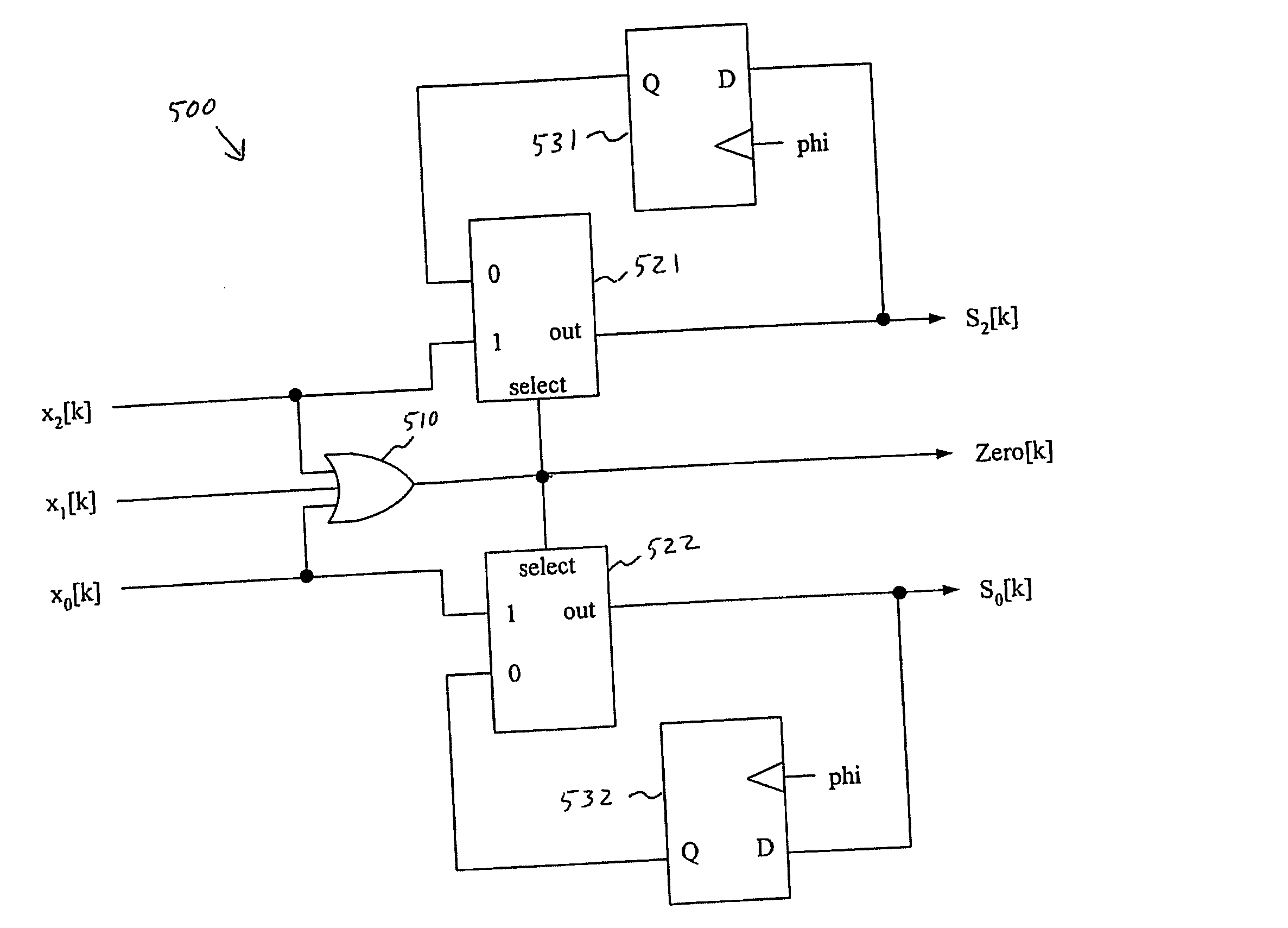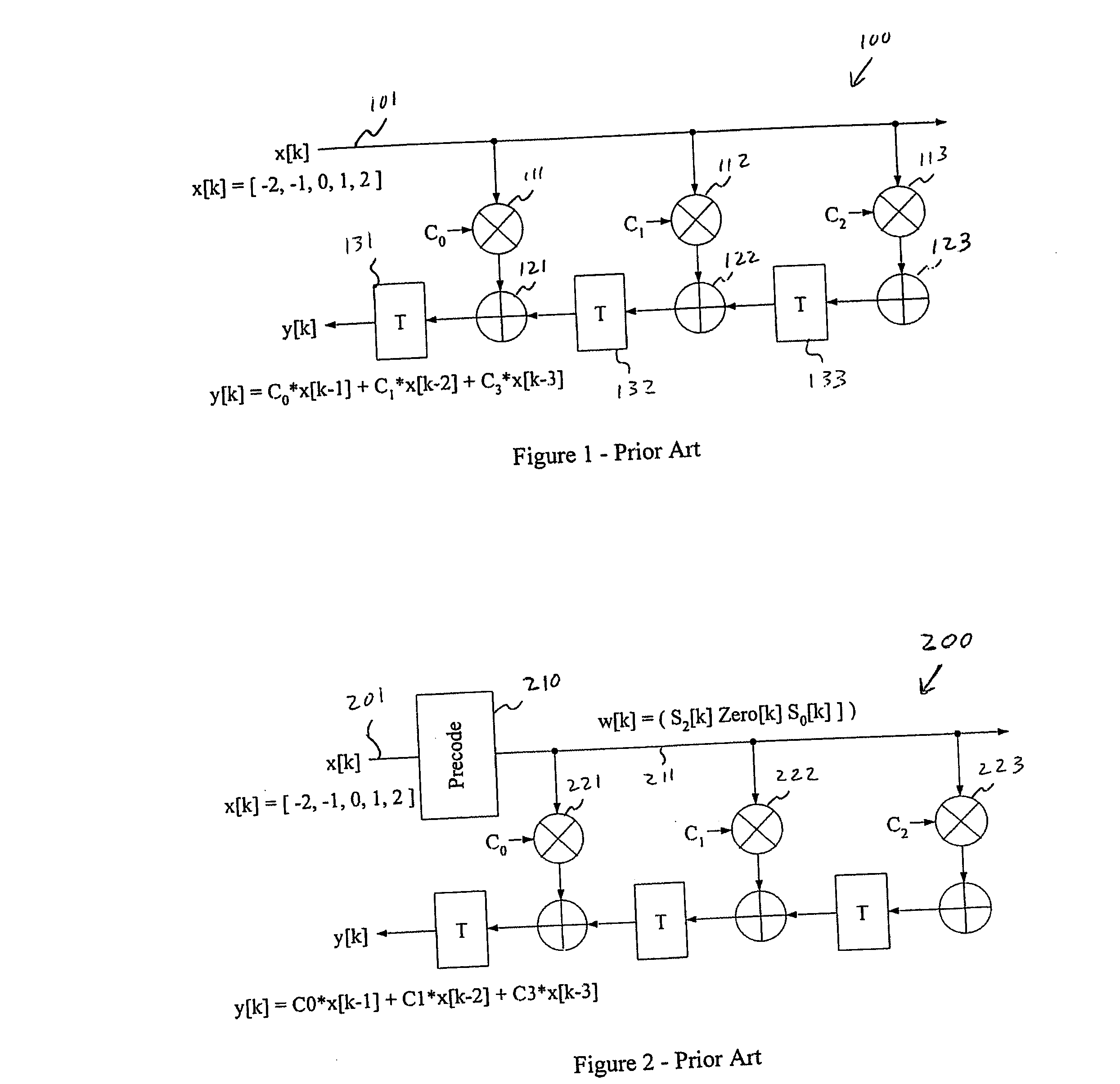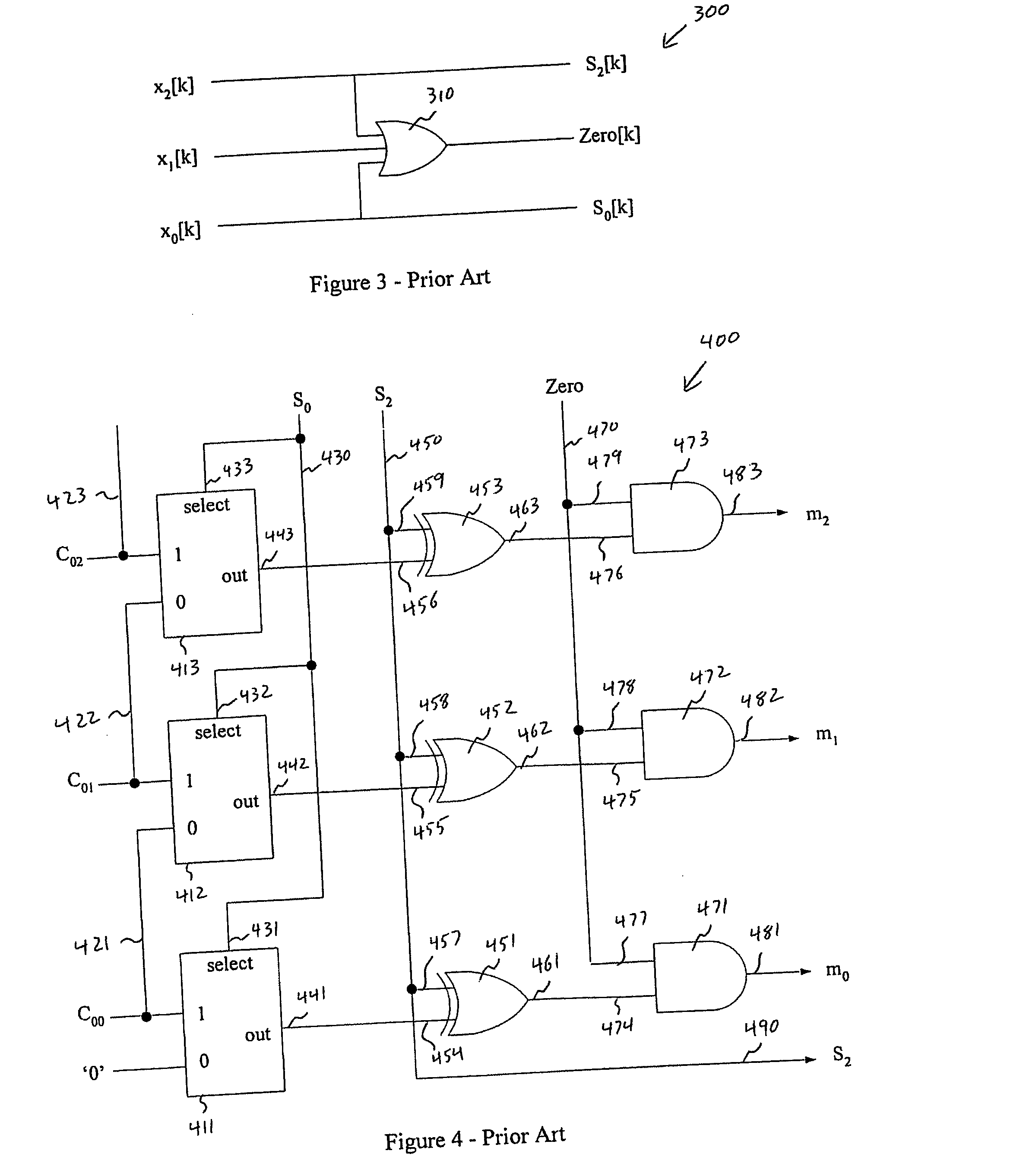Switching activity reduced coding for low-power digital signal processing circuitry
- Summary
- Abstract
- Description
- Claims
- Application Information
AI Technical Summary
Benefits of technology
Problems solved by technology
Method used
Image
Examples
Embodiment Construction
[0023]FIG. 1 is a diagram illustrating a traditional Finite Impulse Response (FIR) filter 100 in transposed form. The illustrated FIR filter 100 shows only three taps, but FIR filters may typically have a large number of taps. The input signal 101 (or “x”) arrives at first, second and third coefficient multipliers 111-113, which multiply the input signal 101 by respective filter coefficients C0, C1 and C2. A third adder circuit 123 adds the output of the third coefficient multiplier 113 to the results from further filter taps 125, not illustrated, which for this example are set to zero. A third delay element 133 receives the output of the third adder circuit 123 and delays the output of the third adder circuit 123 by one sample period.
[0024] A second adder circuit 122 adds the output of the second coefficient multiplier 112 to the output of the third delay element 133. A second delay element 132 receives the output of the second adder circuit 122 and delays, by one sample period, t...
PUM
 Login to View More
Login to View More Abstract
Description
Claims
Application Information
 Login to View More
Login to View More - R&D
- Intellectual Property
- Life Sciences
- Materials
- Tech Scout
- Unparalleled Data Quality
- Higher Quality Content
- 60% Fewer Hallucinations
Browse by: Latest US Patents, China's latest patents, Technical Efficacy Thesaurus, Application Domain, Technology Topic, Popular Technical Reports.
© 2025 PatSnap. All rights reserved.Legal|Privacy policy|Modern Slavery Act Transparency Statement|Sitemap|About US| Contact US: help@patsnap.com



